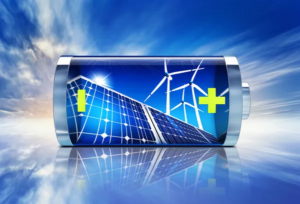The adoption of renewable energy in Nigeria faces several significant barriers and challenges. While Nigeria has abundant renewable energy resources, including solar, wind, and hydroelectric power, there are several economic, technical, regulatory, and social obstacles that hinder the adoption and scaling up of renewable energy technologies. Here is a review of some of the barriers:
- Limited Infrastructure: Nigeria’s existing energy infrastructure is predominantly fossil fuel-based, with limited grid connectivity to rural and remote areas. Developing the necessary infrastructure for renewable energy generation and distribution is a significant challenge.
- High Initial Costs: The upfront costs of renewable energy technologies such as solar panels and wind turbines can be a serious barrier for many individuals and businesses, particularly in a country with a high poverty rate.
- Access to Financing: Limited access to financing options, loans, and grants for renewable energy projects hinders their development. High interest rates and the lack of specialized financial institutions for renewables make it challenging for investors to secure funding. It’s like trying to build a house when no one wants to give you a loan.
- Grid Integration: Integrating intermittent renewable energy sources into the national grid is technically challenging and requires significant upgrades to the existing grid infrastructure to ensure stability and reliability. This simply means that the wires and towers that carry electricity are old and need fixing to carry renewable energy. It’s like needing to make a narrow road bigger to fit more cars.
- Policy Inconsistency: Frequent changes in government policies and regulations related to renewable energy can discourage long-term investments and create uncertainty among stakeholders. If one is playing a game that its rules keep changing, how easy can it be to win?
- Lack of Incentives: The absence of attractive incentives, subsidies, and tax breaks for renewable energy projects makes them less financially appealing compared to fossil fuel alternatives.
- Resource Variability: The intermittency of renewable energy sources like solar and wind can lead to fluctuations in power generation, which can be problematic for maintaining a stable energy supply.
- Public Awareness and Perception: A lack of awareness about the benefits of renewable energy and misconceptions about its affordability and reliability can limit public support for renewable energy. Some people even feel solar energy cannot power some machines like water pumping machines, pure water-making machines, industrial sewing machines, and machines used in manufacturing and production, etc. Whereas, ANYTHING THAT USES ELECTRICITY CAN BE POWERED BY SOLAR ENERGY.
- Environmental and Social Impact Assessment: Stringent environmental and social impact assessment requirements can cause delays in project approval and implementation. Simply put, We need to make sure that renewable energy projects won’t harm the environment or people living nearby, which can take a long time.
- Inadequate Data and Research: Insufficient data on renewable energy potential, resource mapping, and market dynamics hinder informed decision-making and planning. This means we don’t have enough information about how much renewable energy we can make in different places and how to sell it.
To overcome these barriers and promote sustainable renewable energy adoption in Nigeria, a multi-faceted approach is required. This should include stable and supportive policy frameworks, increased access to financing, capacity building, and public awareness campaigns to build support for renewable energy adoption. Additionally, investments in grid infrastructure and technology innovation can help address technical challenges and enhance the reliability of renewable energy sources in the country.
Send us a mail at service@primeradiantenergy.com to make inquiries about our range of solar energy solutions, including top-quality inverters, and take the first step towards a sustainable and reliable energy future. Feel free to contact us here.
Follow us on Linkedln here and Facebook here





